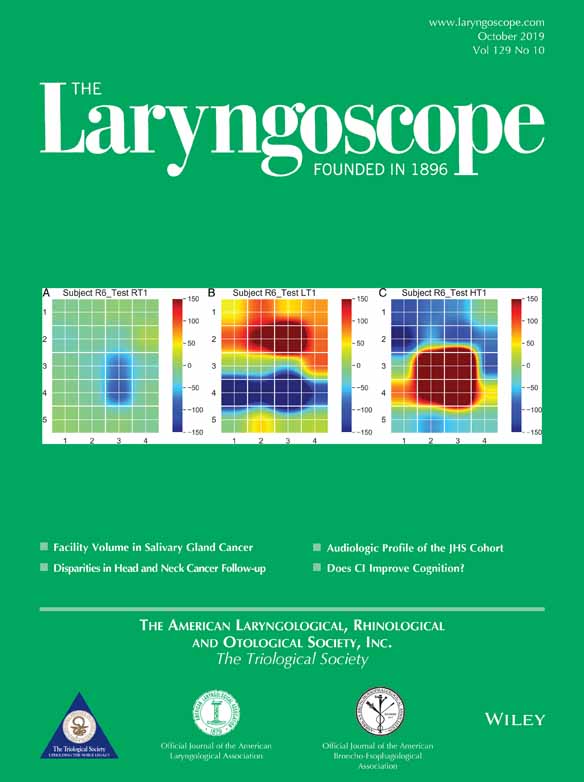Audiologic profile of the jackson heart study cohort and comparison to other cohorts
Abstract
Objectives/Hypothesis
The objective of this study was to determine the audiological profile of an African American cohort, identify related factors, and compare them to other datasets.
Study Design
Cross-sectional, longitudinal cohort study.
Methods
The Jackson Heart Study (JHS) is a longitudinal cohort study of 5,306 African Americans living in the metropolitan Jackson, Mississippi area, with a focus on cardiometabolic health. The JHS Hearing Study (n = 1,314) was implemented to measure the prevalence of hearing, tinnitus, and balance outcomes and relationship to predictor variables. Here we present prevalence and covariate relationships in comparison to the Epidemiology of Hearing Loss Study and the National Health and Nutrition Examination Survey.
Results
The prevalence of self-reported hearing difficulty was 38.1% (n = 500). The prevalence of hearing loss based on audiometric pure tone threshold average (0.5, 1.0, 2.0, 4.0 kHz) of the better ear was 19.8% (n = 260) and for the worse ear 29.8% (n = 392). The prevalence of tinnitus was 29.5% (n = 388) and balance dysfunction 24.1% (n = 317). Relationships of hearing loss to demographic, cardiometabolic, and audiologic variables are presented.
Conclusions
These results demonstrate that hearing loss, tinnitus, and balance dysfunction are common issues affecting adult African Americans, and that hearing loss is related to numerous modifiable and nonmodifiable risk factors. Furthermore, our findings are consistent with lower prevalence of hearing loss in African Americans compared to the non–African American populations. However, despite the lower audiometric evidence of hearing loss, nearly 40% of participants reported hearing difficulty.
Level of Evidence
2b
Laryngoscope, 129:2391–2397, 2019




